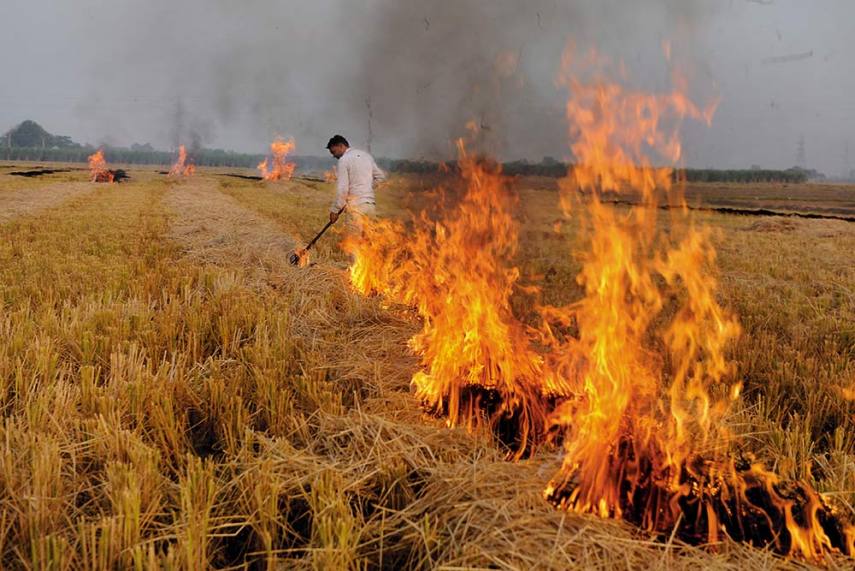
Why is stubble (crop residue) burning?
- November 27, 2023
- 0
The tradition of burning crop residues to prepare the fields for the next crop season is not an old practice. In the past, crop residues, known as “parali,” were manually removed from the fields and mixed back into the soil to create a type of compost fertilizer.
The question arises as to why the practice of burning crop residues was initiated when it degrades the soil and exposes farmers, their families, and the surrounding urban population to various respiratory diseases.
The roots of this change lie in the rapidly decreasing groundwater levels. The reason for the rapid decline in groundwater levels is the unrestricted use of water due to its low or free cost. It is extensively used for cultivating water-intensive crops like rice, especially after the Green Revolution, when governments actively encouraged rice cultivation.
The governments became concerned about the decreasing groundwater levels and, as a result, issued directives to start rice transplantation when the monsoon season begins, rather than preparing the fields by taking water from canals or borewells.
The term “Harvesting” came to signify crop transplantation after the monsoon season. This left farmers with limited time to prepare fields for the next crop. Thus, the practice of burning crop residues in the fields began because it was faster compared to manually clearing the fields by hand.
Farmers are aware of the adverse effects of burning crop residues on the soil and human health, but they believe that they have few alternatives. State governments provide assistance to purchase equipment for removing crop residues from the fields, but the impact has been limited. Perhaps a short-duration crop variety developed by institutions like the Pusa Institute could be helpful.
One suggestion is to impose a ban on rice cultivation in these regions. However, such a move would likely lead to protests from farmers. The central government’s attempt to implement agricultural reform laws resulted in nearly a year of protests by farmers in Delhi, and the laws were eventually repealed. This protest and subsequent rollback demonstrated the political power of the agricultural lobby in preserving its interests.
Subsidies related to the Green Revolution were provided with good intentions, but when productivity increased, there was no provision to phase out the subsidies. It became an entitlement for all farmers, whether rich or poor.
It’s not necessarily wrong for subsidies and support to reach the weaker or needy sections of the population, but in our country, subsidies often get converted into rights, and their political impact becomes significant.































































